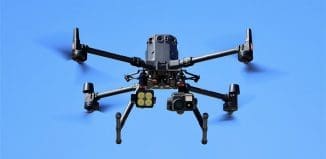Crowd Monitoring Systems as Economic Situation Deteriorate in Eurpoe
This post is also available in:  עברית (Hebrew)
עברית (Hebrew)
By Arie Egozi, Europe
European Countries Are Expressing Interest in Crowd Monitoring Systems as Fears Rise About Riots as the Economic Situation Deteriorate
The economic instability in Europe and the fear of violent reactions in case the situation deteriorates further has resulted in an increase in interest for Israeli systems for remote monitoring of crowd riots.
According to European sources several Israeli systems were evaluated over the last few months. The sources indicated that these Israeli systems under evaluation are civilian versions of military systems which were modified. The systems were designed to monitor cellular systems as well as for surveillance and photography.
In addition, the sources say that these systems can help security forces maintain distance and yet observe the beginning of a demonstration. The systems would allow security personnel to better understand what the organizers intentions are and to introduce controls at the right time.
The sources refused to say whether any deals were signed, but confirmed that some Israeli systems aroused great interest. “It is clear that operationally, Israeli systems exceed what is offered in the market,” said one of the sources.
It is has become known to i-HLS that similar systems have been sold in the last year to a number of countries in Latin America and Africa, such as Magal 3S security systems which were sold for the 2012 African cup. That security program included equipment and systems for perimeter protection, protection of access roads, control of doors and gates, metal detection and explosives, monitoring and face detection.
UAVs are also a possible solution for surveillance and reconnaissance, but this is a subject which is being discussed separately. The operation of UAV’s requires their allowance to fly within civil airspace as well as in urban areas for HLS and civil missions.
It is expected that the first business deals to be concluded will be of a rather small magnitude, but it seems that their scale will continue to grow. Discussions of this subject are taking place currently.
As indicated in an earlier i-HLS report the economic crisis has stopped the procurement programs for several homeland security systems. According to our sources, there is a specific interest in Israeli HLS systems for purposes of monitoring and controlling acts of violence and demonstrations. It is said that the interest is serious and by all indications may lead to small scale transactions for the time being. More expensive equipment and systems are not being purchased at this time due to budget restraints in many European Governments.






























